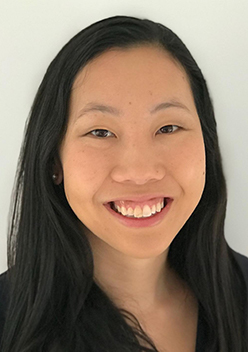
I am grateful to have received the RACGP Foundation Walpole Grieve Award in 2019. 2019 also happened to be the year I received my RACGP Fellowship, got married, and started working in my dual roles as a clinical GP at Gordon Family Practice in Canberra (two days a week) and an academic lecturer GP at the Academic Unit of General Practice with The Australian National University (two and a half days a week).
I love that I am able to see things in clinical practice that inspire me to ask different questions in my research, and that what I teach students (or what they teach me) sharpens how I treat my patients. One example for me is a discrepancy around digital health. I believe that digital health has the potential to make our lives easier, should make managing health more convenient for patients and can definitely improve gaps in health care access equity. But this is not always what I see in clinical practice, especially for my patients with socioeconomic disadvantage.
The concept that the introduction of digital health is actually increasing the gap between the haves and have-nots is the digital health divide. My hope is that we can illuminate some of the ‘why’ of the divide, so that we can be better informed when we design and apply digital health interventions.
Through the support of many of my fellow clinical GPs, my fellow academic GPs and a previous (IPN Medical Centres) Foundation Grant, I have been able to formulate a question and attempt to understand the experience of digital health for patients with socioeconomic disadvantage and chronic disease. Initially we interviewed 19 of these patients, and more recently we surveyed 400 more general population patients. A crucial part of this project has been the very generous support of 30+ general practices in Canberra and south-east NSW who have patiently helped us with patient recruitment.
Through the Walpole-Grieve Award, I am planning to travel to the UK to learn from researchers, non-profit organisations and practitioners there about what their digital health divide looks like, how they are trying to help and lessons they have learned in the process.
I applied for the Foundation Grants because I had interesting questions I wanted to answer and I was convinced that I had the start of a good idea of a way to approach them. The process was relatively straightforward, online and when I didn’t understand something, it was easy to find an answer. I applied without too much hope, but when I got them I was pleasantly surprised, encouraged and felt supported in my efforts to keep asking questions that I hope will lead better care for our patients.
Dr Melinda Choy